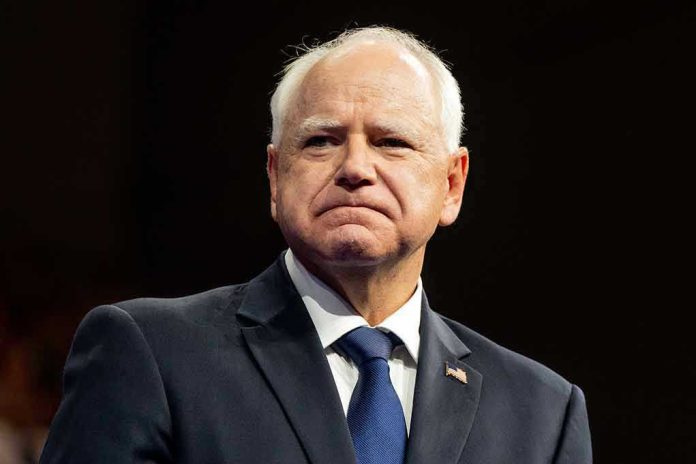
Allegations of Minnesota Governor Tim Walz’s ties to China spark national security concerns, raising questions about the Biden administration’s transparency.
Story Highlights
- Concerns over Tim Walz’s alleged connections to the Chinese Communist Party (CCP) emerge.
- Whistleblower disclosures and internal DHS/FBI communications reportedly withheld by the Biden administration.
- House Oversight Committee issues subpoenas to uncover hidden documents.
- Ongoing investigations fuel debates over foreign influence in U.S. politics.
Concerns Over Walz’s China Ties
Whistleblower disclosures and internal documents from the Department of Homeland Security (DHS) and the FBI have raised alarms about Minnesota Governor Tim Walz’s connections to the Chinese Communist Party (CCP). These concerns came to light when Walz was selected as the Democratic vice-presidential nominee, intensifying scrutiny over his past engagements with China. The Biden administration is accused of withholding these concerns from public view, prompting further investigation by the House Oversight Committee.
The alleged connections between Walz and the CCP are framed as a national security issue, with claims that Chinese officials expressed satisfaction with his nomination. This has led to increased demands for transparency from federal agencies, as whistleblower reports suggest a significant lapse in vetting procedures for high-level nominees. The House Oversight Committee has subpoenaed DHS for related documents, yet resistance from federal agencies continues to impede the investigation.
Background on Walz’s China Engagement
Tim Walz’s history of travel and engagement with China dates back to his early career, involving educational exchanges and congressional roles related to Chinese affairs. His repeated visits to China, including for personal reasons like his honeymoon, have come under scrutiny amid rising U.S. concerns over CCP influence in American politics. The political climate is particularly sensitive to foreign influence, especially from China, leading to intensified congressional investigations into such ties.
While Walz defends his record as educational and diplomatic, critics argue that his connections pose a security risk. The ongoing debate highlights the broader issue of foreign influence at state and subnational levels, with the potential to affect vetting procedures for future candidates. The situation underscores the tension between international engagement and ensuring national security, a topic of significant concern for conservative audiences.
Implications and Political Ramifications
The investigation into Walz’s alleged CCP ties has significant implications for both short-term and long-term political dynamics. In the short term, increased scrutiny of Walz and the Democratic ticket could lead to reputational damage and heightened partisan debates over foreign influence. Long-term, this case may set precedents for congressional oversight of subnational foreign contacts and influence vetting processes for high-level nominees.
Furthermore, the investigation could have broader implications for U.S.-China relations, potentially affecting academic and educational exchange programs. As the political landscape continues to evaluate the balance between international engagement and national security, this case serves as a pivotal point of discussion for policymakers and the public alike.







